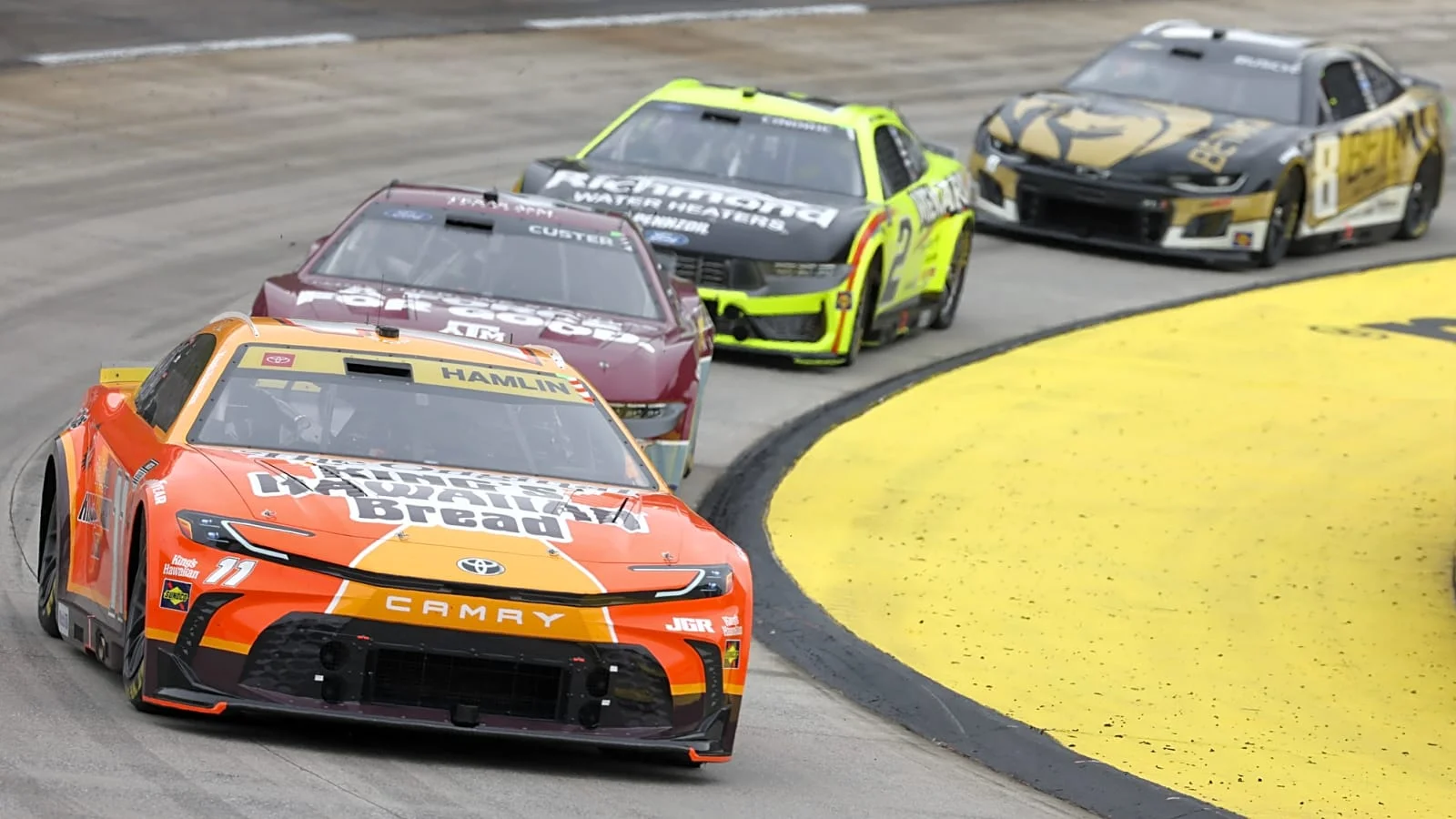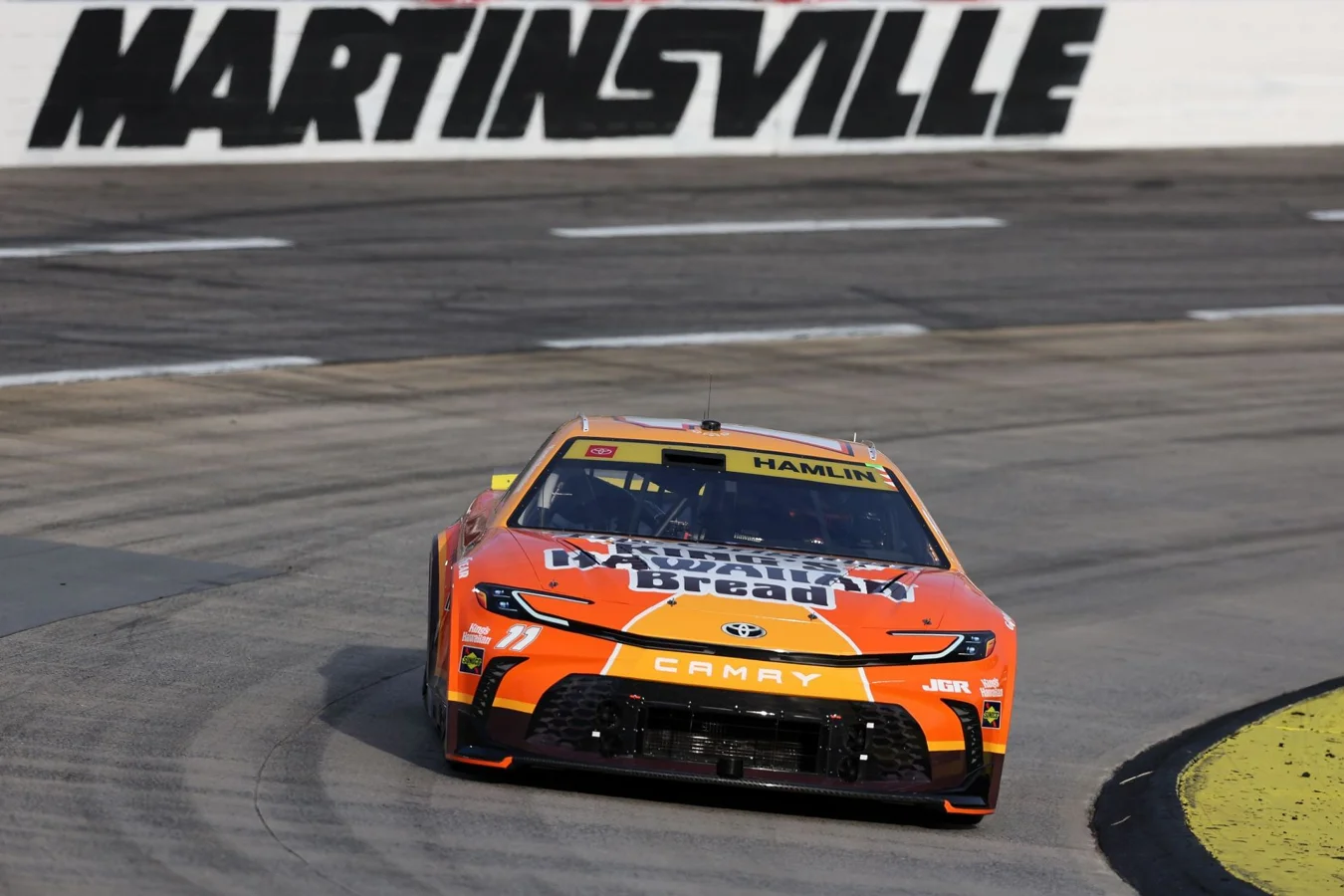The Denny Hamlin Martinsville race reaction to Sunday’s Round of 8 finale brought renewed attention after Hamlin spoke candidly about Carson Hocevar’s challenging day, spinning out three times over the course of 500 laps at Martinsville Speedway. Hamlin, whose own race was cut short by an engine failure, critiqued Hocevar’s approach and the overall driver etiquette during his appearance on the “Actions Detrimental” podcast on Monday.
Hamlin Reflects on Racing Tactics and Hocevar’s Troubles
During his discussion, Hamlin explained why he chooses not to impede other drivers unnecessarily, referencing the events at Martinsville. Hamlin highlighted that he deliberately avoided blocking several cars, choosing a more measured approach on the track.
“I let no less than five cars actually pass, like let them pass,”
Denny Hamlin, driver
He elaborated on the potential for drivers to remember negative encounters, making a point about long-term consequences in competitive racing. Hamlin directed some pointed remarks at Carson Hocevar, questioning the necessity of aggressive blocking and chopping maneuvers early in such a lengthy race.
“I don’t know why some people feel it’s so necessary air-block and chop noses on Lap 100 when we got such a long way to go. If you’re good enough, you will get your shot at some point in the day. … Everyone remembers stuff. When you drive them like a d*ck, they definitely remember. Why do you think Carson Hocevar was in four wrecks? I’m just saying, it’s OK to let people go and if you’re good enough, you’re going to get your shot. Even though those guys were racing my teammate and racing for their own spot in the final four, to me it didn’t really matter. It is what it is.”
Denny Hamlin, driver
Carson Hocevar’s Wild Day in the Round of 8 Finale
Carson Hocevar’s race quickly became a series of misfortunes. He first spun twice after tangling with Daniel Suárez, who is set to become his teammate at Spire Motorsports. The initial collision left Hocevar vocal and frustrated, particularly after a caution was called when he spun out on Lap 216. On his radio, Hocevar expressed his anger in blunt terms, displaying the intensity of the moment.

Despite his determination to stay close to the lead lap, Hocevar found himself spinning once again late in Stage 3. Ultimately, he finished 31st at Martinsville, far from the result he had hoped for as the stakes rose for the final playoff spots. These repeated incidents not only tested Hocevar’s patience but also made him the focal point of both criticism from fellow drivers and the public conversation led in part by Hamlin.
The Broader Impact of Driver Strategies and Rivalries
The exchange of words and actions at Martinsville captured the mounting tensions of playoff racing, with Denny Hamlin’s comments underscoring the fine line between aggression and sportsmanship. Hamlin’s decision not to escalate situations with contenders like Chase Elliott or Joey Logano positioned him as a proponent of long-term strategy over short-term conflict. Meanwhile, Hocevar’s repeated mishaps and his radio outburst highlighted the pressure drivers endure during high-stakes events. The ongoing rivalry, especially as Hocevar transitions to being Suárez’s teammate at Spire Motorsports, adds another dimension to future NASCAR races, including those at the iconic Martinsville Speedway.
